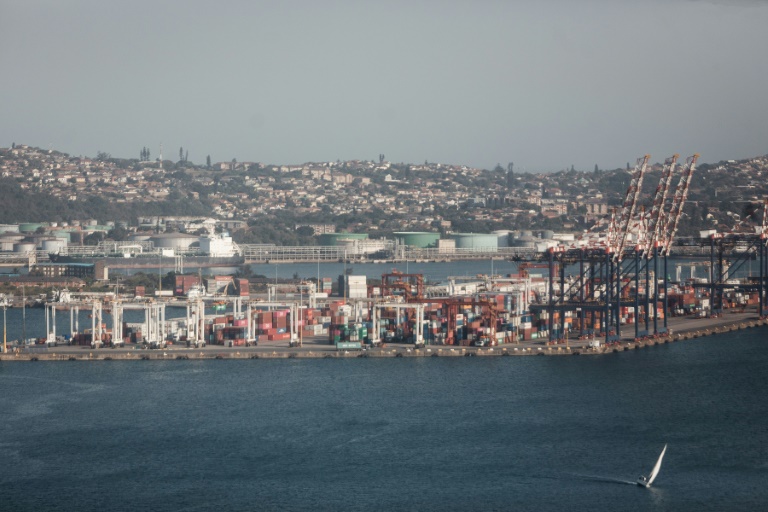‘Disastrous’ gridlock hits S. Africa’s busiest port

Dozens of container ships are stuck outside Durban port as bad weather and systems breakdowns hit its operations
Johannesburg – More than 60,000 containers are stuck at sea waiting to be offloaded at South Africa’s biggest port amid gridlock blamed on bad weather and equipment failures that is damaging the poor economy, according to business and political groups.
Dozens of vessels are waiting outside the southeastern port of Durban, which handles about 60 percent of the country’s container traffic, according to South African Association of Freight Forwarders (SAAFF).
The bottleneck at the port operated by state-owned Transnet, evolved in a political squabble on Monday, with the leading opposition party calling for the sacking of the public enterprises minister.
“The situation is disastrous,” John Steenhuisen, head of the Democratic Alliance (DA) party, said after flying over the port by helicopter.
“The cost of this crisis is gargantuan and threatens not only the performance of South Africa’s already ailing economy, but our desirability as an investment destination for international trade.”
South Africa is heading towards general elections in 2024 amid high unemployment and lacklustre economic growth.
A major exporter of minerals and agricultural products, its ports are often seen as a gateway to southern Africa.
Transnet has said the delays in Durban are the result of bad weather compounding breakdowns, ageing equipment and other issues.
But the DA and business groups said the crisis has been long in the making.
“This delay is due to lack (of) equipment maintenance, failure to buy equipment and run the straddles, stacks, and tugs effectively,” the Durban Chamber of Commerce and Industry said last week, demanding an “immediate solution”.
Hobbled by graft scandals, maintenance troubles and theft, Transnet, which operates the country’s rail freight network and all its ports, has long struggled to support Africa’s most industrialised economy.
Holdups at Durban and other terminals is costing the economy more than 120 million rand ($6.4 million) a day, according to SAAFF.
The situation reached a critical point, SAAFF director Mike Walwyn told AFP, calling for public-private partnerships to take over the management of ports.
Last week, President Cyril Ramaphosa said greater private sector participation in container terminals was among planned reforms to the logistics system.
“I’ve made it very clear to the management that I’d like to see all the problems solved by next year,” Ramaphosa said as he visited the port of Richards Bay, where delays have forced Transnet to suspend the processing of trucks carrying coal exports.
Polls for next year’s election suggest that the ruling African National Congress, marred by allegations of corruption and mismanagement, could see its vote drop below 50 percent for the first time since the advent of democracy in 1994.
